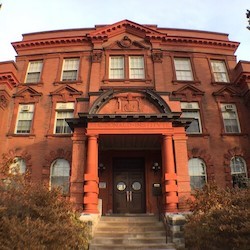Stretching Our Stories (SOS): Digital World-Making in Troubled Times

About the Project
In early 2020, as COVID-19 cases surged, Aisha S. Ahmad wrote that "there is simply no way that our lives will resume as if this had never happened." This irreversible social shapeshifting has pushed many storytellers online, toward Internet-based multimedia world-making. This trend is compounded by intensifying inequalities and environmental crises marked by Indigenous resurgence and #BLM movements. In this critical moment, there is an urgent need for spatially-marginalized storytellers to stretch their work beyond the norms of knowledge generation in community-driven research processes. This project establishes a new online arts- and story-based research program responding directly to four distinct community-university groups of intellectually and physically disabled, Indigenous, and trans and gender non-conforming (TGNC) storytellers in Ontario and Alberta using digital methodologies to advance new collective knowledges and refuse the ableist, colonial and turbo-capitalist systems that brought on these troubled times.
As we move toward an unpredictable era commonly known as "the new normal," Stretching our Stories (SOS): Digital World-Making in Troubled Times bolsters communities' vibrant online world-making practices as processes of artful knowledge creation by asking: How can we deepen space for critical, online multimedia story-making as embodied and felt inquiry in ways that enrich our understandings of the affective, social dynamics of vulnerability, isolation, affirmation and resistance for underrepresented groups in unprecedented times?
Conceived of and led by disabled, Indigenous, and TGNC storytellers confronting the uneven impacts of digital divides and social unrest, SOS expands generative relationships between the Re-Vision Centre for Art and Social Justice at the University of Guelph, Tangled Art + Disability (Toronto), story-makers at Humber College's Community Integration through Education program (Toronto), the WAABAN Indigenous Teacher Education program at York University (Toronto), Women's and Gender Studies at Athabasca University (Edmonton), and Ryerson University's School of Disability Studies (Toronto). Incorporating a participatory action research governance structure into this partnership, these sites will direct Re-Vision's emergent online multimedia story-making methodologies toward sustainable, urgently needed knowledge creation and mobilization. Re-Vision's methodological advances are rooted in over a decade of digital storytelling experience and bridge the areas of slow scholarship with digital technology. Designed accessibly at the onset, this partnership keeps pace with each site's individual and collective narrative re-inventions, propelling methodological shifts toward generative Internet-based story- and world-making.
As an intersectional, arts-based social justice partnership, SOS strives to uphold and mobilize the protocols and world-making traditions of these communities through a critical technoscience approach that supports community growth and relationship building across all sites. This vital partnership will serve as a catalyst for: 1) establishing a cross-provincial online collaborative with 90+ story-makers; 2) creating innovative, inclusive multimedia story-making tools and methodologies that cross digital divides; and 3) training highly qualified personnel in collaborative, interdisciplinary, cross-sectorial activism. As disabled, Indigenous, TGNC storytellers recover from and adapt to disruptions and uncertainties, their online story-making challenges concepts of "inclusion," "access" and the "new normal" as experienced, negotiated and reimagined by those whose world-making expands felt epistemological states of difference---now entirely online in troubled times.